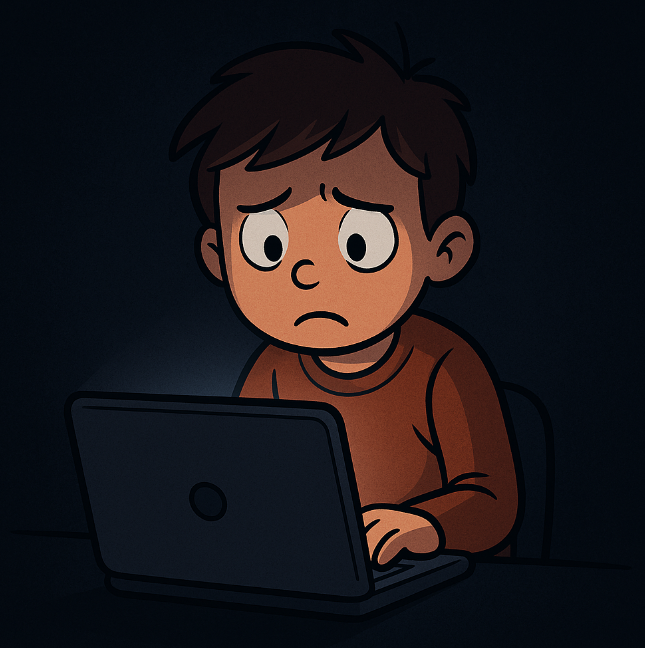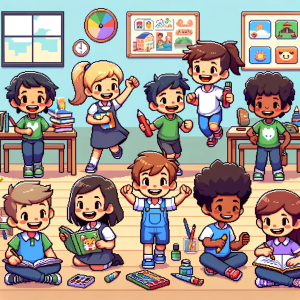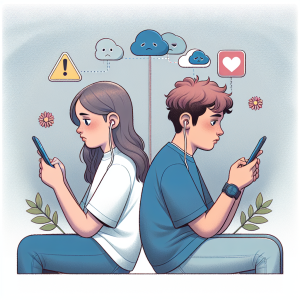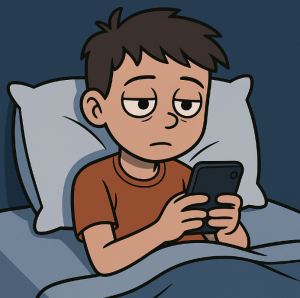
When Control Turns Toxic: How Parental Pressure Fuels Teen Cyberbullying (and What Schools Can Do About It)
It started with a single text—a sarcastic comment that spiraled into a group chat pile-on. By the next morning, a 14-year-old girl was in tears, her phone flooded with messages from classmates mocking her outfit and calling her names. Her mom’s reaction? “Ignore it. You wouldn’t be so sensitive if you didn’t stay up so late.”
That offhand comment may sound familiar to parents and teachers. But according to new research published in Frontiers in Psychology, late-night scrolling and the parent-child tension around it may be more deeply connected than anyone realized
The study, led by Jing Xu and colleagues from Wenzhou Medical University, examined how parental psychological control—using guilt, withdrawal of affection, or excessive authority—can indirectly increase cyberbullying behaviors among adolescents. The surprising twist? The connection runs through two hidden factors: poor sleep and weakened moral reasoning.
The Hidden Link Between Control and Cruelty
Let’s unpack this chain reaction.
When parents use psychological control (“You’re embarrassing me,” “If you loved me, you’d do what I say”), kids internalize stress and anxiety. That emotional strain doesn’t disappear at bedtime—it follows them into the night. The study found that teens under high parental control often struggle with poor sleep quality, tossing and turning through a storm of self-doubt and resentment.
That sleep loss does more than create grumpy mornings—it disrupts brain regions involved in empathy and self-control. Sleep-deprived teens become more reactive, less reflective, and more likely to lash out online.
Next comes the second domino: moral disengagement. This is psychologist Albert Bandura’s term for how people justify doing something they know is wrong—such as telling themselves, “It was just a joke” or “They deserved it.” When adolescents are emotionally worn down and disconnected from their moral compass, those excuses come more easily. Put simply: tired, stressed kids are more likely to rationalize cruelty.
When Age Makes Things Worse
The study also found a troubling twist: this chain grows stronger as students get older. For younger kids, moral disengagement doesn’t always translate into action—they might lack the social savvy or access to online spaces to carry it out. But for high schoolers, moral disengagement becomes a gateway to cyberbullying. They know the rules. They understand consequences. And yet, their growing mastery of technology makes digital cruelty easier to hide and harder to stop.
That means schools can’t wait until bullying “starts” in middle or high school. The groundwork—both emotional and cognitive—is laid much earlier.
Why This Matters for Parents and Educators
This research doesn’t just point fingers at parents. It reveals a complex feedback loop between family dynamics, mental health, and moral development.
- Control Backfires: Parents who try to manage their child’s emotions through guilt or love withdrawal often do so with good intentions—wanting to protect or guide them. However, this form of control undermines trust and autonomy, both of which are essential for healthy development.
- Sleep Is a Social Issue: Sleep deprivation isn’t just a private problem—it’s a community health concern. Kids who don’t sleep well struggle more with empathy, decision-making, and impulse control. Schools that dismiss late arrivals or sleepy students as “lazy” miss the bigger picture.
- Morality Isn’t Fixed: Teens’ ability to reason morally can be strengthened or weakened by stress, fatigue, and family environments. When young people feel emotionally safe, they’re more likely to take responsibility for their actions and empathize with others.
From Research to Real-World Action
Here’s what parents, teachers, and school psychologists can take from Xu’s findings:
1️⃣ Ditch the guilt trips.
Instead of “You should be ashamed,” try “I’m worried because I care about you.”
Open communication fosters reflection, not rebellion.
2️⃣ Make sleep sacred.
Model good habits—no devices in the bedroom, consistent bedtime routines, and downtime before bed. Teachers can advocate for later school start times or “sleep hygiene” education in health classes.
3️⃣ Teach digital ethics like driver’s ed.
Online responsibility isn’t intuitive. Classroom lessons about empathy, accountability, and digital citizenship can directly reduce moral disengagement.
4️⃣ Check emotional temperature before discipline.
If a student lashes out online, look beyond punishment. Are they under pressure at home? Struggling with sleep? Viewing cyberbullying through a psychological lens helps schools respond with compassion and strategy, not just sanctions.
Rethinking “Good Parenting” in the Digital Age
What this study ultimately reveals is that love without autonomy can feel like a form of control. And control, when constant, chips away at the very skills kids need to thrive online—self-regulation, empathy, and moral clarity.
For educators and mental health professionals, this underscores the need for whole-child approaches —policies and programs that address emotional regulation, family dynamics, and sleep health in a comprehensive manner.
The digital world magnifies what’s already there. When teens feel unseen or powerless offline, they may seek control online—sometimes through harmful means.
But when they feel trusted, supported, and rested? That’s when kindness—and accountability—start to grow.
Let’s Talk About It
What do you think?
- What’s the biggest mental health challenge you see in schools today?
- How can parents balance guidance and autonomy?
- Should schools take a stronger role in promoting sleep and emotional wellness?
Join the discussion below or share this article with a colleague who cares about student well-being.



